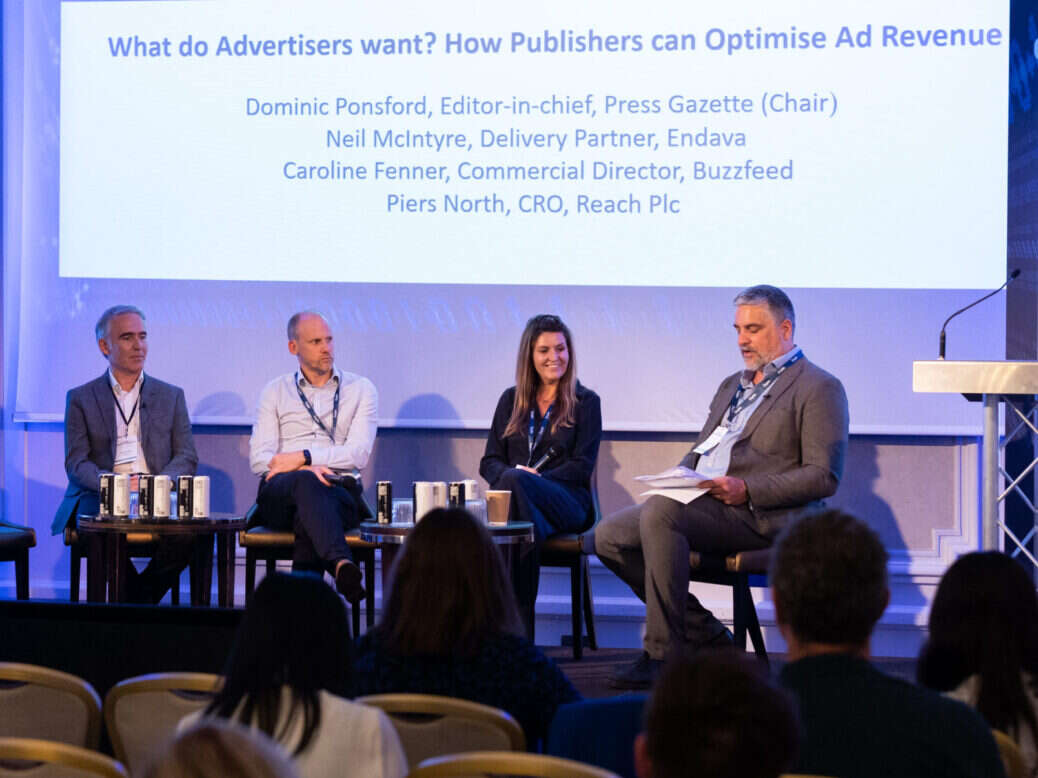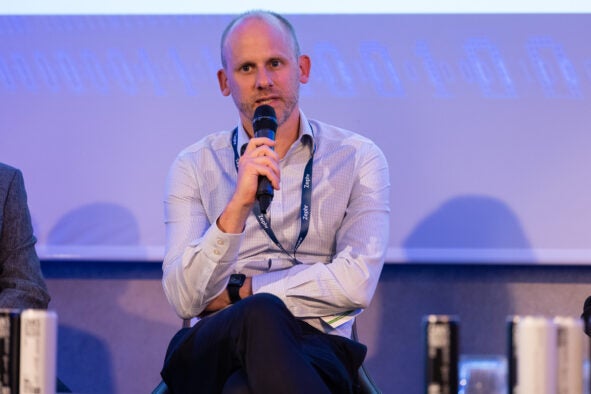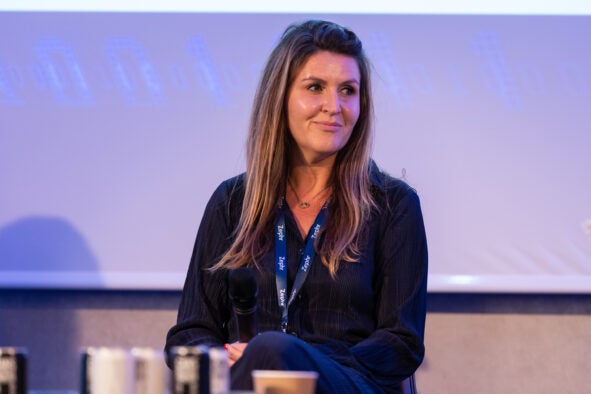
Commercial bosses at Reach and Buzzfeed have slammed the use of advertising keyword blacklists that stifle publishers’ ability to make money from hard news online.
Piers North, chief revenue officer at national and regional publisher Reach, told Press Gazette’s Future of Media Technology Conference that unless the issue is tackled, publishers could see no choice but to ditch serious topics and write about “cats on skateboards”.
For years blocklisting, a term created by amalgamating blocking and blacklist, has led to publishers appealing to advertisers and agencies not to rely on crude keywords to stop advertising appearing on pages featuring words like “terror”, “shoot” or “war”. It was a threat during the Covid-19 pandemic, when traffic was at record highs but ad revenue did not follow.
In 2019 Reach created its own AI ad tool, Mantis, in an attempt to better detect whether stories are “brand safe” without excessive blocklisting or delays to publication. Mantis has since been licensed out to other publishers including The Independent and Evening Standard.
North said: “I personally do understand why brand managers [keyword block] – we’re all human, we don’t want to get a phone call from our boss at 12 o’clock at night when your ad’s appeared on our site or any other site and it’s not a great placement. So there’s no point thinking that the human condition is wrong, you’ve got to do something about it. So that was kind of the point about doing Mantis.”
[Read more: Reach provides ‘irrefutable’ evidence that advertising next to negative stories safe for brands]
But he argued decisions made about advertising following the Queen’s death had brought the issue “sharply into light”.

Reach chief revenue officer Piers North at the Future of Media Technology Conference. Picture: ASV Photography Ltd
North said Reach had deployed its own version of Operation London Bridge – the name given to the palace’s plan to announce and mark the Queen’s death – within minutes, which included all its advertising being taken down.
“Two hours later, I’m on Facebook, I’m on Instagram and I’m seeing that betting company running around on Instagram and I have a visceral reaction, which is why is it appropriate?
“I just find that really hard because the truth is it does lead us down a path where either news businesses will not sustain – well do you know what, we won’t cover the Queen’s death, we’ll just go back to cats on skateboards because at the end of the day if that’s what people are watching and that’s what advertisers want to put their content around, why cover any serious news?”
He said he has seen advertisers sit on panels and insist “we really do value news”. But “when it comes to it they’re pumping their ads along random content on Instagram”.
North suggested the inability to make money from hard news online had contributed to a “depressing” dearth of coverage from Ukraine as the war continues.
“…the cost of sending journalists into a frontline warzone now, we did it in the early days of the invasion around Kyiv but it’s really expensive and how do you fund sending two people into a warzone – we either just don’t cover it and you can listen to the Ukrainian side or the Russian side, and that’s fine, but it’s a real problem and I’m not sure I have the answer.”
[Read more: Google ad pause on Ukraine war content must ensure trusted publishers not ‘unintentionally impacted’]
North said it was up to news brands and marketeers to find the answer: “We can’t expect someone to rescue us. We’ve got to figure it out.” That is why Reach created Mantis and took part in the Ozone Project, a digital ad selling platform that came from a rare joint venture involving many of the UK’s national publishers.
North said ad buyers had backed the idea because it meant there was one buying point, but he added: “Okay, prove it: if that’s what agencies say then where is that money because it’s not still with Ozone or individual publishers, it is still going to the platforms.”
Caroline Fenner, commercial director at Buzzfeed, told the audience: “We need to support news brands, not make it difficult for them – they have a tough enough job as it is.”
Describing it as a “moral dilemma”, Fenner said she felt “very strongly” about the issue, having previously ran the commercial team at current affairs title The Week.

Buzzfeed commercial director Caroline Fenner at the Future of Media Technology Conference. Picture: ASV Photography Ltd
“You’ve got these journalists and you want to have free news but ultimately when you’re blocklisting and avoiding content all the time it’s really difficult because monetising news content is tough,” she said. “You don’t have that in any other media.
“If you’re within a PMP [private marketplace] or if you’ve got some premium publishers that you’re advertising with or if you’re using Ozone, you shouldn’t need blocklists because ultimately you’re in safe hands and you’re advertising to curious, intelligent, engaged people.”
Also on the panel, Neil McIntyre, delivery partner at software company Endava, described blocklisting as “taking a sledgehammer to crack a nut” but said there were an increasing number of solutions in the market that look at context on the page as well as keywords – for example, a story that mentions terror but is not about a terror attack.
“Obviously war, the Ukraine war is a big issue and we’re not going to resolve any of those issues in terms of blocklisting and context because it’s still going to block the ads, but we can see more solutions coming out of the marketplace and we are working towards solutions as well,” he said.
Picture: ASV Photography Ltd
Email pged@pressgazette.co.uk to point out mistakes, provide story tips or send in a letter for publication on our "Letters Page" blog
